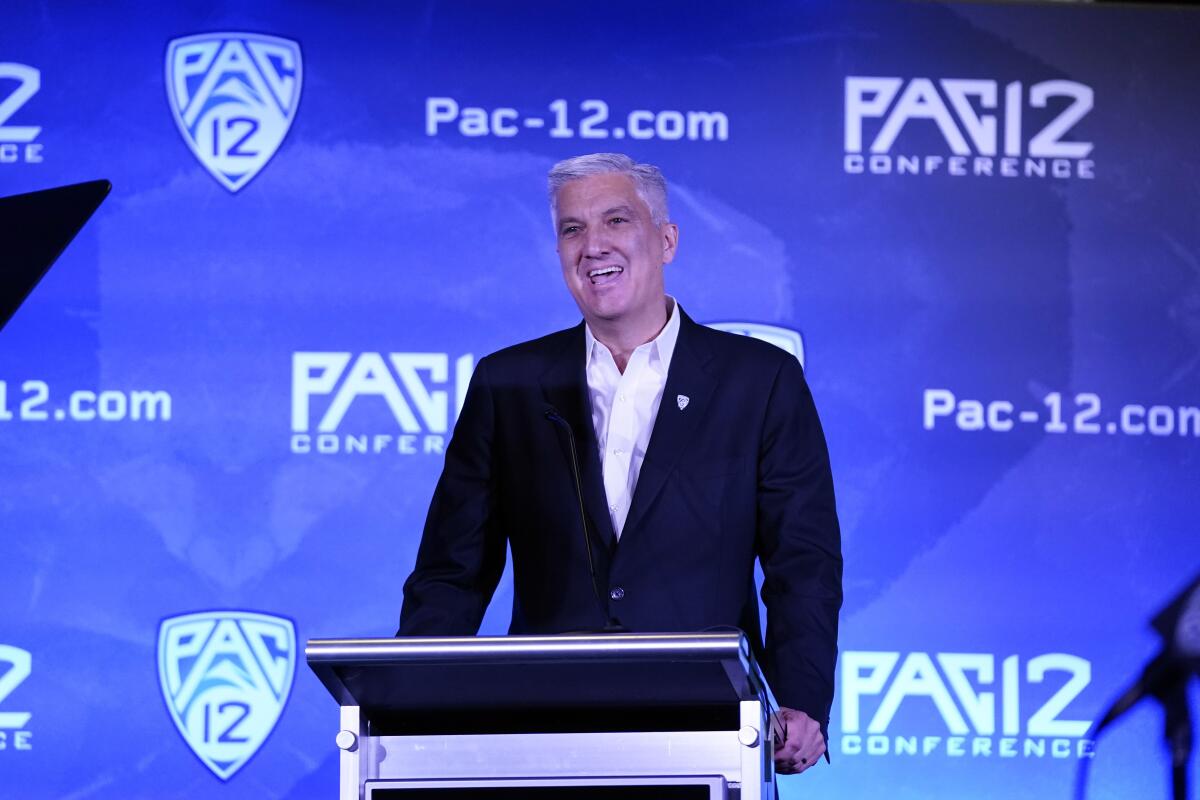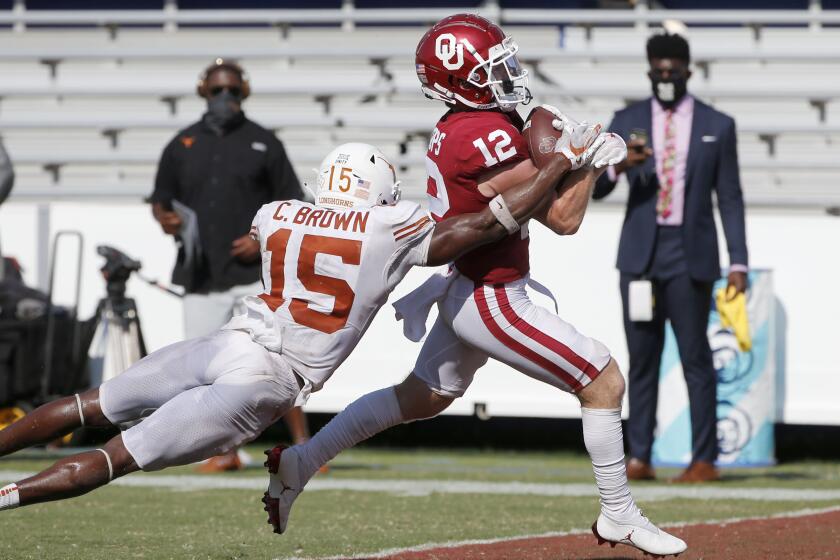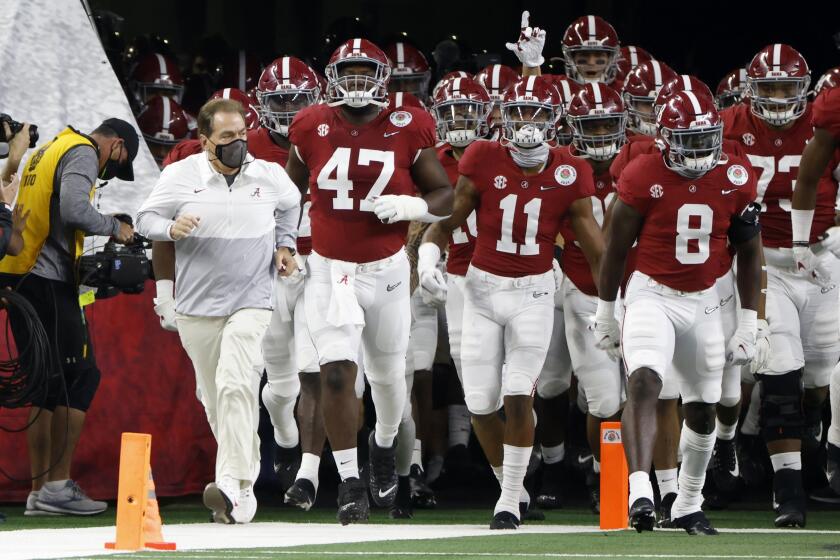George Kliavkoff: Pac-12 does not need to expand after Texas, Oklahoma moves to the SEC

- Share via
Minutes after Texas and Oklahoma officially applied for membership in the Southeastern Conference, new Pac-12 commissioner George Kliavkoff took the stage at Pac-12 football media day Tuesday morning in Hollywood and sent the message his league does not feel like it has to expand during this latest wave of realignment.
“We believe the move by Texas and Oklahoma from the Big 12 to the SEC strengthens our unique position as the only Power Five conference with teams in the Mountain and Pacific time zones,” Kliavkoff said. “Given our investments in football and men’s basketball and historic combination of other sports, we do not think expansion is required to continue to compete and to thrive. “That said, the fallout from Texas and Oklahoma gives an opportunity to once again consider expansion. We’ve already had significant inbound interest from other schools. We will work with our chancellors and presidents to evaluate these opportunities.”
The Pac-12 Conference, unlike the Big 12, won’t be decimated by any potential moves Texas and Oklahoma make to the SEC.
Making his first public comments since the announcement of his hire to replace Larry Scott as commissioner in May, Kliavkoff stressed that there would be a “high bar for entry” for any new member and that “we don’t think there’s any risk of staying at 12 teams.”
Kliavkoff was asked about a Twitter report that surfaced Tuesday morning that Texas Tech, one of the remaining eight Big 12 schools, has had conversations with the Pac-12 about joining the conference since news broke last week the Longhorns and Sooners were seeking entry to the SEC. Kliavkoff said he would not discuss individual schools.
“With respect to bars [new members would have to clear,] that is something we’re going to be discussing with our presidents and chancellors,” he said. “As you know we take into account academics, athletics, cultural fit, but there’s no bar that anyone needs to clear.”
That includes membership in the Assn. of American Universities (AAU), Kliavkoff said.
The Pac-12 has numerous paths it can consider to bolster its offerings leading into its all-important 2024 media rights negotiations that will shape the league’s financial picture for decades to come.
With the SEC poised to add Texas and Oklahoma, four Los Angeles Times writers gathered to draft four, 16-team super conferences. The selections and snubs may surprise you.
It could add schools from what’s left of the Big 12, extending the league’s footprint into Texas — a potential boon for recruiting in a talent-rich state and a share of the Dallas-Fort Worth and Houston television markets.
It could reach out to an old ally in the Big Ten Conference, which is also evaluating its options to respond to the SEC’s big move. The Pac-12 and Big Ten, with their historical relationship forged in Pasadena at the Rose Bowl, could decide to partner in scheduling or even merge their paths into a larger conference championship pursuit that would span the entire country and match the SEC’s growing ambition.
Kliavkoff did not address the Big Ten specifically but did say, in regard to a scheduling arrangement with another conference, “It’s an interesting opportunity. It’s under discussion but nothing to announce today.”
Of course, the Pac-12 made it clear it can also do nothing.
But Kliavkoff did not want there to be any confusion about the Pac-12’s stance on expansion. Just because the league doesn’t feel it is absolutely necessary does not mean it is not a priority. He said that the Pac-12 will consider each of the options on the table “in a very timely manner.”
More to Read
Go beyond the scoreboard
Get the latest on L.A.'s teams in the daily Sports Report newsletter.
You may occasionally receive promotional content from the Los Angeles Times.













